In 2009, I took a trip to Austin, Texas with my family. While we were there, we paid a visit to the Bob Bullock Texas State History Museum. If you ever find yourself in the city, I highly recommend going yourself; not only does Texas boast one of the most robust, eventful, and interesting histories of all the states in the union, but the museum itself is simply well-constructed, well organized, and rich with engaging exhibits and displays.

When we visited, it just so happened to coincide with a speaking event by one Richard Garriott. Garriott himself is a colorful character worthy of a deep-dive unto himself. An English-born American, an alumni of the University of Texas, and well-known eccentric, Garriott’s father, Oklahoma-native Owen Garriott, was a decorated and accomplished NASA Astronaut and aerospace scientist.
Garriott was eager to follow in his father’s footsteps, but, due to poor eyesight and lacking physical health, he was never able to meet the rigorous standards required to qualify for the position. A lot of things could be said of the eccentric Garriott, but it can’t be said that the man was not as tenacious. Tapping into his considerable personal wealth, Garriott was able to secure a position aboard the Russian-helmed Soyuz TMA-13 mission to the International Space Station in 2008, where he would spend twelve days living out his life-long dream of traveling beyond the confines of the pale blue dot, all for the modest price of thirty million dollars.
Garriott’s speaking engagement was not something I was aware of when I just happened to visit the museum. I didn’t even know who the man was, but, I happened to meet him while he was there and spent some time talking to him. At some point, he asked me if I was fan of video games. In 2009, I was probably at the zenith of my addiction to the wildly popular MMORPG, World of Warcraft, so, naturally, I brought it up.
I distinctly recall Garriott smirking. You know, he said. Without me, there wouldn’t be a World of Warcraft.
This statement puzzled me. Like I said, I was unaware of Garriott’s history outside of what I’d learned during the course of our conversation, which was limited to his talk of his experiences aboard the International Space Station, and I couldn’t really figure how that tied into World of Warcraft.
Have you ever heard of the Ultima games? Garriott asked me
I replied that I hadn’t.
He laughed and said something along the lines of, Figures. It was before your time. He told me that, before he dedicated his efforts to pursue space travel, he’d been a video game developer, and the Ultima series of video games had been his most successful endeavors. If I hadn’t made Ultima, most of your favorite games probably wouldn’t exist, he told me.
Even at the time, Garriott came off as a figure that was rather… proud of his own personal achievements, shall we say, and I assumed that this statement was perhaps a bit hyperbolic. It wasn’t until several years later that I realized he hadn’t been exaggerating.
In 1979, Garriott had programmed Akalabeth: World of Doom on a Apple II personal computer at his high school in suburban Houston, a game that, today, is widely recognized as one of the first examples of an RPG (Role-Playing Game) video game. Then, in 1981, Garriott would set the standard for future RPG games with the release of Ultima I: The First Age of Darkness. It was with this game and it’s following installments that Garriott and his small team would typify many of the features, tropes, and cliches that continue to be heavily leaned upon in role-playing games to this very day.
See the byline, By Lord British? Yeah - that’s not just the name of a character in game, but Garriott’s own self-bestowed fantasy title, inspired by the fact he boasted dual-citizenship between the United States and the United Kingdom. I’d met the Lord British, and I didn’t even realize it until years later.
The man accrued a tidy fortune through his video game empire, using it not just to fund his space expedition, but all manner of exorbitant endeavors, including the construction of his sprawling Austin estate, Brittania Manor, which really needs to be seen to be believed.
Oh. Sorry. That’s the Brittania Manor Mark II. Which is demolished now. Here’s the current Brittania Manor - Mark III.
Also, once, a crazed fan broke into the estate back in the 90’s, to which Garriott responded by spraying the living room down with his own private fully-automatic Uzi. I just think that’s fun.
Though there is some debate over whether or not Richard Garriott really did set the stage for World of Warcraft, I do think he was correct when he said that many of my favorite video game, and probably some of my favorite fantasy and sci-fi universes, would not have come to pass if he hadn’t been tooling around on his high school’s Apple II in a computer lab back in the late 70’s. Garriott’s contributions to video games and impact on the genres of fantasy and science-fiction as a whole, though often overlooked today, cannot be overstated.
I think this would have become apparent as time went on and I dug further and further back into the history of video games and, in particular, role-playing games as my love and lust for them grew over the years, but, as I said - I had heard of the Ultima series at the time, and simply forgot about it while I was speaking to Garriott. After all, I’d only heard of it in passing while watching the videos of a certain online commentator, and the subject of today’s article.
As it was, my first exposure to the Ultima series came not with shaking the hand of Lord British himself and awkwardly posing alongside him for a photo in that Austin museum, but rather from the erstwhile darling of nerds, dorks, geeks, and video game buffs across the internet, Noah Antwiler - better known by his own nom de guerre, The Spoony One.
I want to make this clear from the jump - this article is not written from a place of malice. Far from it. Back in 2009, if you had given me the choice between meeting what may be the man most singularly responsible for the modern role-playing video game and a wildly successful, self-made millionaire, entrepreneur, space tourist, and president of the Explorer’s Club, and a niche internet micro-celebrity and independent content creator making videos in his parent’s house, I would have opted to spend time with the latter. There is a fall to the story of Noah Antwiler that I and all others who have written or made videos about the man wish had never happened. Back in the waning years of the Oughts and the earliest years of the 2010’s, Antwiler was one of, if not my favorite creator on the internet.
In the near future, I intend on doing a deep dive into the collective of internet personalities once known as Channel Awesome. As one of the most prominent members of this group, Antwiler was inevitably going to come up. Most, when revisiting this period of internet history and the motley crew of characters that defined it, only talk about Antwiler after speaking about other, more prominent figures, like Doug Walker - the Nostalgia Critic - or James Rolfe, also known as The Angry Video Game Nerd, if they speak about him at all. In recent years, it seems as if Antwiler’s contributions to the scene have been slowly but steadily forgotten, if not erased, as the lore of him contemporaries continues to be written, and his continues to remain stagnant, and, whenever news of his whereabouts does arise… well, you know how no news is good news, sometimes? With Antwiler, that’s usually the case.
However, I want to start this (potential) retrospective with Noah Antwiler. Out of the sprawling cast of characters that populate the scene we set out to explore, no other among embodies it quite like Antwiler; the humble beginnings, the meteoric rise, and, of course, the catastrophic fall.
Much like Garriott set the standard for role-playing video games, it could be argued that Antwiler was one of the early adopters of the internet media critic style of videos. He wasn’t the first. He wasn’t the most successful. But he was nothing if not influential, and, more importantly, I think there’s a solid argument to be made that Antwiler was perhaps the most beloved by his audience.
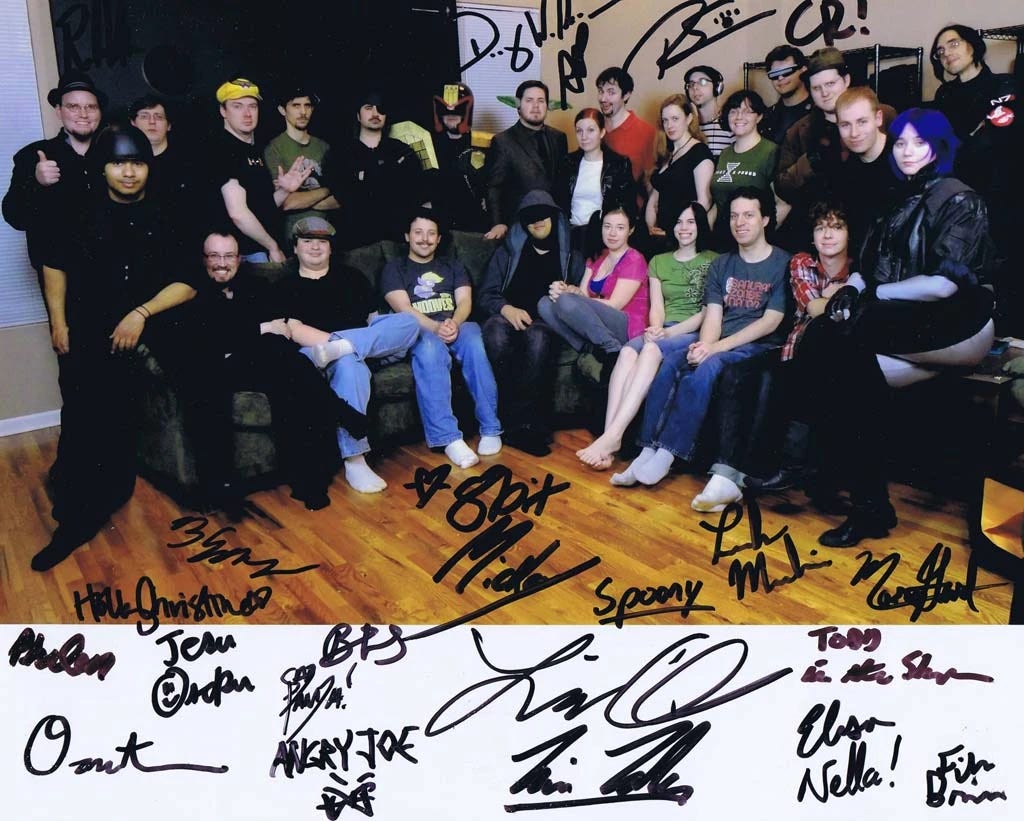
At his peak, Antwiler was making over $5,000 a month off his Patreon. Today, that per month number stands at $167.90.
Even the claim that he’s creating silly videos is questionable, since it’s been years since he’s uploaded anything of substance, and most of it has been anything but silly. In fact, I’d say the downfall of the Spoony One is one of the more lurid tales of an internet content creator’s fall from grace. Though he isn’t the most high-profile content creator to ever burn out, his plunge into obscurity has certainly been one of the most tragic and difficult to watch.
I’m sure you’re asking yourself - what the hell happened?
Well, before I can tell you that story… first, I have to tell you this one.
When YouTube was launched in 2005, it did not take all that long for the phenomenon of the angry internet critic to begin manifesting in small, dark corners of the site. The internet critic is, as the name would imply, a critic who posts on the internet, and they are angry. The concept was as simple as it was effective. Most early-adopters succeeded with nothing but a webcam or a crude microphone, with which they would record colorful, profanity-laced diatribes where they verbally lambasted and flayed pieces of bad media. Bad video games were the most common recipients of this abuse, though it wouldn’t be long until other critics came into the space that directed their ire to movies and other forms of media
Though some early examples such as Cracked.com’s Seanbaby, current laughingstock, notorious cuckold, and former associate of Dick Masterson, Maddox of The Best Page In The Universe, and Rich “LowTax” Kyanka of the SomethingAwful forums represented a semi-professional approach to the concept even before the advent of YouTube, the field was, by and large, dominated by amateurs who simply wished to discuss their hobbies and passions with a wider, global audience. A year into the platform’s history, creators such as UrinatingTree, GamingGoose, and the late Marcus Sparacio, under the name Armake21, would all make waves in the space, though, unfortunately, much of their content is now lost to time.
In 2007, however, the scene would be rocked and the trajectory of YouTube as a whole would be irrevocably altered by the uploads of one James Rolfe, who took his 2004 spoof reviews of old NES games from his personal site, Cinemassacre.com, and uploaded them to YouTube in late 2006.
Though Rolfe’s story will be told another day, this is the singular figure that ignited the fuse that would cause the concept of the internet critic to detonate, spawning hundreds, if not thousands of imitators and copycats in the aftermath.
One of these would be then-27 year old Noah Antwiler, of Mesa, Arizona. Raised in the suburbs of Phoenix, Antwiler had been a life-long fan of fantasy, science fiction, and role-playing games, his passion for which came through even in his earliest and roughest content. In the early 2000’s, Antwiler had obtained a degree in Computer Science from Arizona State University in nearby Tempe which, despite having a reputation for being something of a party school, is still a serious and respected educational institute, and one of the largest public universities in the United States.
When I attended college, degrees in the STEM fields were touted as the most safe and secure educational paths to take. Jobs in those fields were in high demand, and I remember being told that if you wanted to have a guaranteed job out of college, you’d be a fool not to enroll in a STEM program. The end result was that, naturally, many students followed this path, confident that it would result in a comfortable life of easily-secured and constant employment.
Almost a decade later, the results have made themselves apparent, and this advice has been revealed to be what it always was - a grift. By encouraging so many students to go into the STEM fields, what resulted was a serious glut of people with those degrees and a highly competitive job market. Difficulties were compounded by an increasing amount of foreign labor being imported into the country, as well as an increasing amount of jobs being outsourced abroad. While it’s still hard to argue that a STEM degree isn’t still a better pursuit than, say, one in gender studies, such a path proved not to be the easy meal ticket that my generation was sold.
Antwiler was a victim of this cycle in its previous iteration. He spoke to the fact that, when he entered college, Computer Science was touted as the right path to go, and the degree would pay for itself within years of graduation. It almost goes without saying that, by the time Antwiler graduated, the field there were more CompSci majors than there were jobs, and even those were rapidly filling with imported labor from countries like India and China. I’m sure as I type this, the cycle is once again repeating, though what fields the Zoomers are being funneled into, I’m not sure.
According to Antwiler’s LinkedIn page, he worked for Citation Technologies in Scottsdale, Arizona from 2006 to 2007 as a proofreader for OCR technology. From what I can glean in a Google search, I believe that means he was looking over scans of various documents that had been automatically translated by computer programs - basically, a human auto-correct for automated programs. Probably not the most enthralling work in the world, but, hey - it’s a living, I guess.
He also cites his work writing the monthly article, A Gamer’s Rant on Movies, which is a title that desperately needed some serious workshopping. This was, though, I must specify, back in the day when gamer was not the pejorative it is today, but it still just… doesn’t really roll off the tongue all that well. These articles were published for a site that I can only seem to find listed as KOTD, and seems to be long since defunct. Again, a Google search returns results for King of the Dot, which I thought sounded like a reasonable name for an on-line publication, but apparently is the name of a Canadian Rap Battle League. I didn’t know that there was such a thing as rap battle leagues, in Canada or anywhere else.
Even though King of the Dot seems to have made an attempt to make a wider entertainment brand, something tells me that this outfit wasn’t much interested in a Gamer’s Ranting on anything, let alone movies.
Call it a hunch.
Oh, and, uh - if you’re curious as to who won the Gotti vs Hollohan throwdown…
Check it out for yourself.1
ADDENDUM: So, while I was writing this article, I did manage to discover that KotD actually stands for Knights of the Dinner Table Magazine. This magazine, it appears, was something of a spin-off from a comic strip of the same name.
I’m sure this is riotously funny if you eat, breathe, sleep, and shit Dungeons and Dragons.
The magazine focused on, as you could probably assume, gaming news and comedy surrounding the scene and community, and, if what I could find is anything to go by, is built on comedy that is nearly impenetrably dense with esoteric role-playing game references and jargon that a casual like me is utterly incapable of understanding. This is the part where I expected to tell you that it was, naturally, published in print copies many years ago in brick and mortar game shops, and now, like so many places that it once circulated in, is now defunct.
Except that isn’t true.
It’s still being published. The site updated five days ago as of this writing. I don’t know what’s more surprising - that the certain breed of geek that would still read something like this isn’t extinct yet, or that this publication outlasted Antwiler’s online career.
However, most of Antwiler’s articles have been preserved for posterity. Reading through some of these, one can see that Antwiler clearly has a talent for comedic writing, but… well, it’s yet to be refined into the more focused and sharp critique he would later become known for, and rather comes off as exactly what it says - a rant. Again, ranting was big business on YouTube for a long time, and, for whatever reason, nerds have always loved to hear other prattle on and filet bad pieces of media for as long as nerds have been anything. We’ll come back to that in a minute, though.
The point is, one can see the roots of Spoony’s future career as a cultural commentator taking shape in these articles, which he wrote monthly from 2004 to 2007. Eventually, he’d begin posting some of them, as well as articles on his own website, dubbed The Spoony Experiment.
If you’re wondering why the word spoony keeps coming up - come on, dawg, be patient. Have some faith. I wouldn’t leave you hangin’ like that. You know Papa Ape’s got you, baby, don’t worry.
Now, believe it or not, spoony is an actual, legitimate word in the English language, and one that can be traced to a slang word used in Victorian England where the word spoon was used as a kinder word for idiot. Thus, spoony became a term for silly or ridiculous behavior, and, overtime, softened in connotation to be more suited to describe one so deep in the throes of infatuation that they begin to make mistakes or act like a fool. This means those spoony simps is not just a fun string of words to say, but also a bit redundant.
Antwiler was introduced to the term as a young teen when he played Final Fantasy II, in which there is a scene where a character, in a fit of absurdly localized and translated rage, calls another a spoony bard.
At the time, it was a common misconception that this was just shoddy translation work on the part of Square Enix rather than a legitimate, if antiquated, term. Antwiler was one of many that found the line so out of place and humorous that it just kind of stuck with him, until one day, years later, he’d be playing a game of Dungeons and Dragons with friends, and realized that he had the perfect name for his newly created bard character - Tandem. Because, of course.
But, Tandem… well, he was a bit… silly. One could even say that he was… a little spoony?
Yes - Tandem, was the name bestowed upon the character, and The Spoony was the epithet chosen as his title. This character must have stuck with Antwiler, or resonated with him significantly, as when he tried his hand at writing movie reviews, Tandem’s Movie Rants was the title he chose to use.
By the time Antwiler moved to posting on his own website, he’d already begun to experiment with creating video content. The name The Spoony Experiment was originally that of his first series - or planned series - which he intended to be a sort of Mystery Science Theater 3000 riff.
If you weren’t terminally addicted to television before you were terminally online, you might not be aware of what Mystery Science Theater 3000 is, and, if I had to guess, you probably think that it’s nothing but lame nerd shit. In a way, you’d be right; the series, often abbreviated to MST3K because the entire title is a bit of a mouthful, began a science fiction parody on Minneapolis public access television, in which a space station janitor is trapped in a satellite by two mad scientists, who subject him to terrible science fiction and horror B-Movies to gauge his reaction. Why? Well, why did Anthony Fauci have beagle puppies locked in cages full of sandflies to literally be devoured alive?
Because they’re all sadistic fucking psychopaths? No! They did it, for, er… science!
You just aren’t smart enough to understand. Come back when you have a Ph.D., and maybe you’ll be capable of understanding scientific value of physically and psychologically abusing baby animals.
Anyways, the main character - played by series creator, Joel Hodgeson - had a collection of robot companions voiced by local Minneapolis-area comedians, all of whom would join him to watch these terrible movies and offer snarky, comedic commentary throughout. It wouldn’t take long for the series to develop a cult following and see expanded syndication across the country, eventually airing on Comedy Central, where it would continue to thrive and accrue a cult but rabidly passionate following.
These days, the same folks behind the show are now responsible for the RiffTrax series, in which they do the exact same thing - make snarky commentary while a movie plays - just without the sci-fi pastiche schtick. Remember how I said nerds really like listening to people rant about bad movies, bad games, so on and so forth? I think that MST3K’s continued popularity, longevity, and influence speaks to that fact.
But this ain’t about them.
If you couldn’t tell from the snarky commentary bit, just about every individual in this little angry internet critic was drawing heavily from MSTK3 and, later, RiffTrax, for inspiration.
Antwiler, however, would take it one step further, and sought to create a series that was almost identical to MST3K in every way, right down to creating his own robot companions. The only one that was ever completed was dubbed Burton, and became something of a mascot for the site.
In this series, Antwiler would play a fictionalized version of himself named - what else - Tandem, that would also be called the Spoony One, who was trapped by evil scientist and forced to watch bad movies as part of an experiment.
Thus - The Spoony Experiment was born.
And promptly died.
For a variety of reasons ranging from financial limitations to time constraints and trouble finding suitable cast mates, the series never really took off. I’m not sure if it took off at all. There are rumors that Antwiler filmed a couple episodes that have since been scrubbed from the internet, but, if they ever existed, I never saw them. Though Antwiler constantly kept the project on life-support and always seemed to think that, one day, he’d finally have the time and resources to take another swing at the concept, he shifted his attention to a different form of video content.
In 2007 - a full year after the advent of Rolfe setting the gold standard for the angry internet critic schtick - Antwiler would upload his first video and throw his hat into the ring with a review of the NES game, Bayou Billy on a channel that bore the name, The Spoony One. I’m not sure if this was the first video Antwiler uploaded to YouTube, but it is, undeniably, the flashpoint that would ignite the series of events that lead up to today.
Compared to similar content being put out by other angry internet critics at the time, the differences are starkly apparent.
Clocking in at eighteen minutes, this video was significantly longer than those of his peers. Compared to many of those contemporaries, Antwiler came across as humorous, but also level-headed, sober, and articulate. Where as most angry internet critics were content to simply to simply point at a bad game, list out the many reasons it was bad, and not really say much more than This is game is fucking terrible! I’d rather eat shit than play this game!
Antwiler didn’t sound like he was doing a bit or playing a character, but rather came off as someone who’d had a genuinely bad experience with the game in question and was relaying the information to the audience the same way he might talk to a friend over a cold beer. There was an air of authenticity to the video that made him feel likeable, relatable, and, really, like a friend, right off the bat.
In a scene teeming with so many people trying - and failing - to ape James Rofle’s Nerd character, reveling in performative anger and overwrought hyperbole, Antwiler’s more sedate and thoughtful approach to the concept felt like a breath of fresh air.
Rewatching this video, I also get the sense that Antwiler never really intended to follow the angry internet schtick as a career path - he just kind of fell into it. Though, obviously, Antwiler had accrued a small following from his time writing for Knights of the Dinner Table magazine and posting on their forums, it wasn’t until the release of this video and the glut of new followers it would bring him that the story of The Spoony One truly begins.
But, we’ll save that part of the story… for next time.
I didn’t watch this. Just for the record.






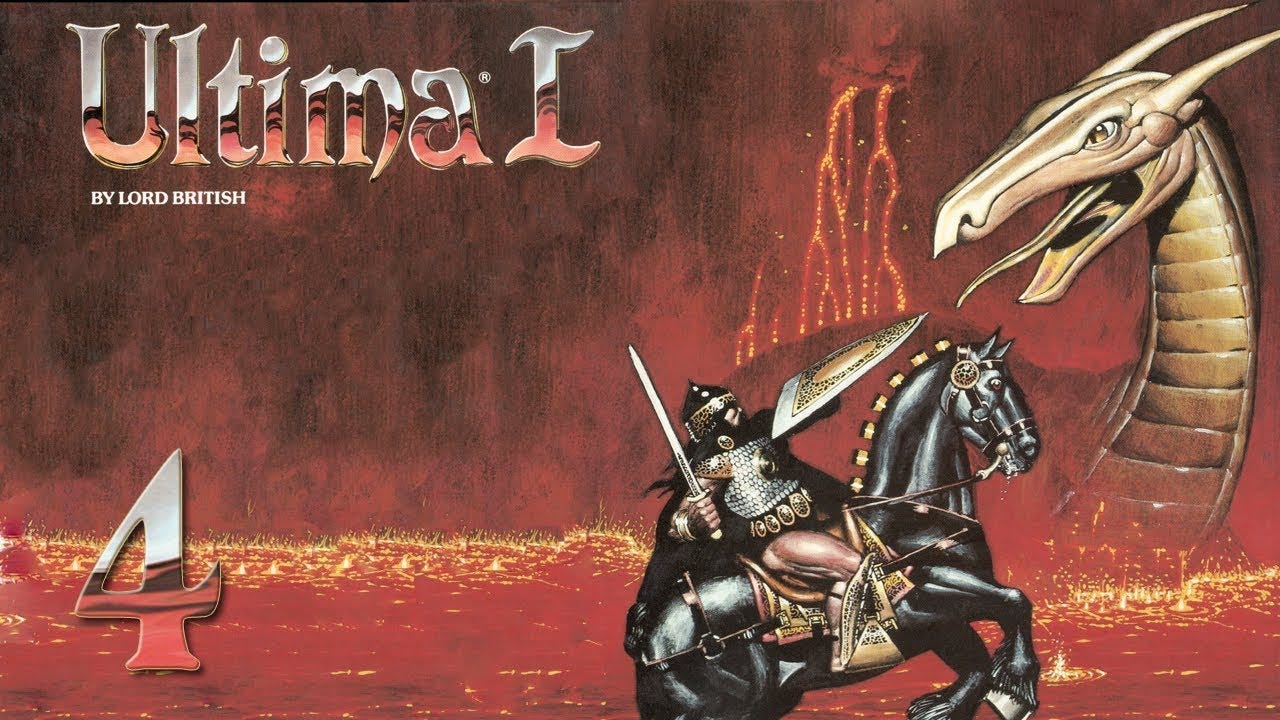







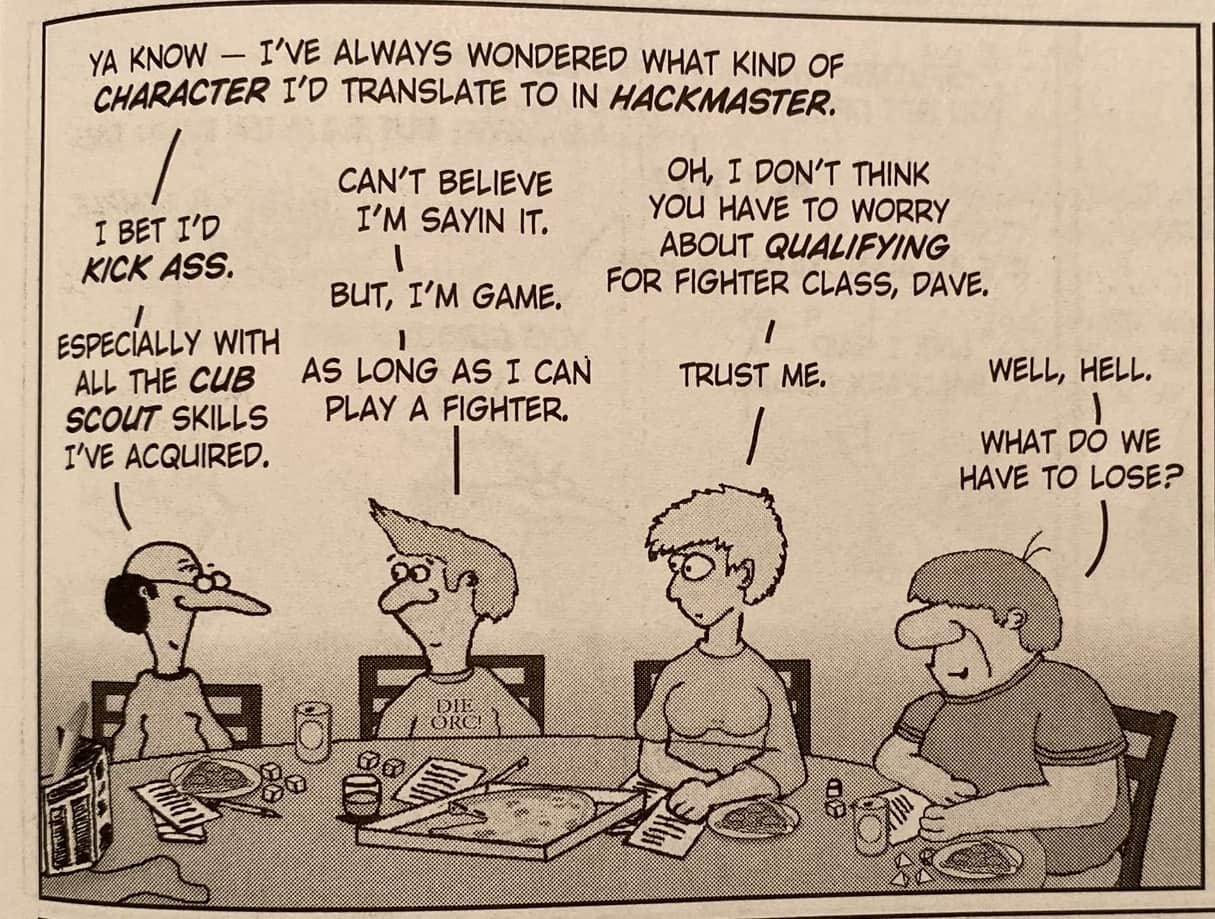


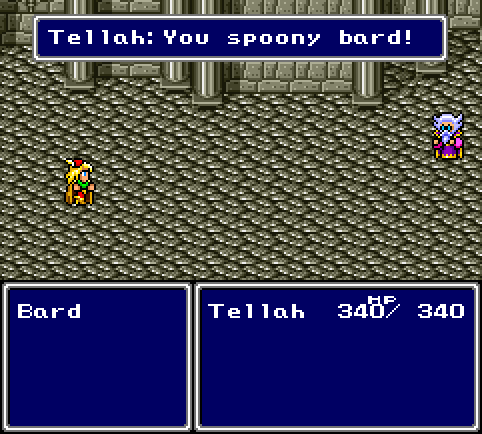

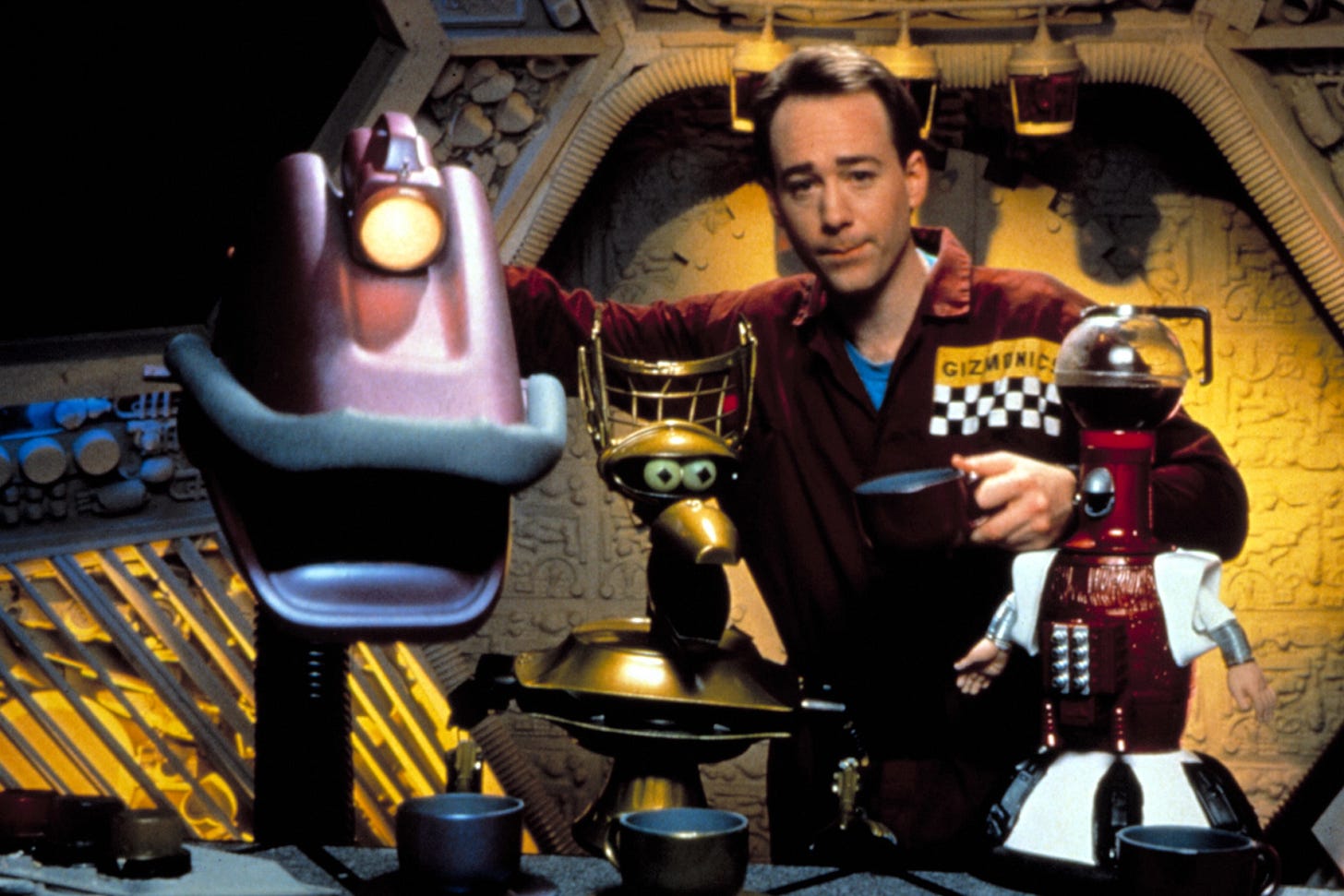


On the one hand, I'm familiar with Rolfe, Maddox, Ultima and MST3K. I think I even vaguely knew about KoDT.
On the other, I am completely unfamiliar with Antwiler. What makes it weird for me is that I lived in Phoenix during the precise time period you're discussing. So I'm experiencing this weird, dream-like combination of nostalgia and amnesia.
"Hey, that's Lord British! [continues reading...] Oh, he's an astronaut or something, must be a different Richard Garriott. [continues reading...] Hey, cool, it is him!" I clocked a lot of hours on Ultima IV and V, so it's nice to hear he did well on the proceeds.